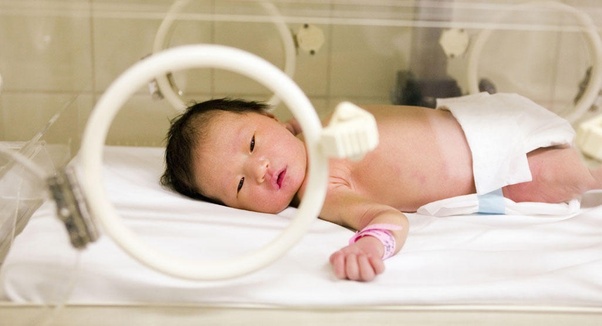New-born babies are sometimes admitted to the neonatal intensive care unit (NICU) if they are prone to any health issue like an infectious disease. You may not see it coming but there is nothing to worry about. In these cases, paediatricians and neonatologists check if a baby’s vital signs, like breathing, temperature, colour and heart rate, are normal. Babies born to mothers with high blood pressure, gestational diabetes or a history of drug abuse are also diagnosed and treated in the NICU. Here are the usual reasons why your baby may be sent to the NICU for special child care.
Reasons for Your Baby Being Admitted to the NICU
- Premature birth
This is one of the most common factors to admit your child to the NICU. This kind of birth happens before 37 weeks of gestation. Premature babies, being underdeveloped, have trouble coping with the outside world. They may experience unstable body control, low birth weight, irregular temperature and sometimes, long-term neurological disorders.
Premature babies require a uterine surrounding. For that, they are kept at a stable body temperature under an isolette or incubator in a controlled environment. These babies receive intravenous hydration, low-calorie nutrition and other therapies depending on any other conditions.
- Respiratory Distress Syndrome (RDS)
This a respiratory condition caused by immature lungs. Babies experiencing mild RDS are treated with a machine to send air through their nose and keep their lungs inflated. Those with severe RDS are treated using a breathing tube and, sometimes, placing them on a ventilator.
- Infection or sepsis
This generally does not affect full-term babies but can threaten the life of premature babies. The sooner your baby is born, the more vulnerable he/she is to an infection. For a predetermined duration, antibiotics are provided to the baby depending on the kind of infection and lab tests.
- Hypoglycaemia (low blood sugar)
This happens mostly in premature babies who are born to mothers suffering from gestational diabetes. It also occurs in infants with infectious diseases.
- Perinatal depression
Traumatic or difficult deliveries reduce the oxygen supply and blood flow to the baby. This can result in brain injury. Babies undergoing perinatal depression are usually treated with whole-body cooling by neonatologists to reduce brain injury.
- Maternal chorioamnionitis
This happens when bacteria infect the umbilical cord, amniotic fluid, and membranes (amnion and chorion) surrounding your baby. In this case, bacteria infect both you and your foetus, making your baby prone to infections. After childbirth, if you have a fever, uterine tenderness and an increased heart rate, your new-born baby is generally sent to the NICU and treated with antibiotics for clearing the infection.
If your baby later develops any child health issues, don’t hesitate to take him/her to the best child specialist in Bangalore with many years of experience in a children’s hospital. If they grow into children and adolescents with an untreated critical disorder, they might need a paediatric surgery. Hence, early or timely medical care is best for your child’s health.

